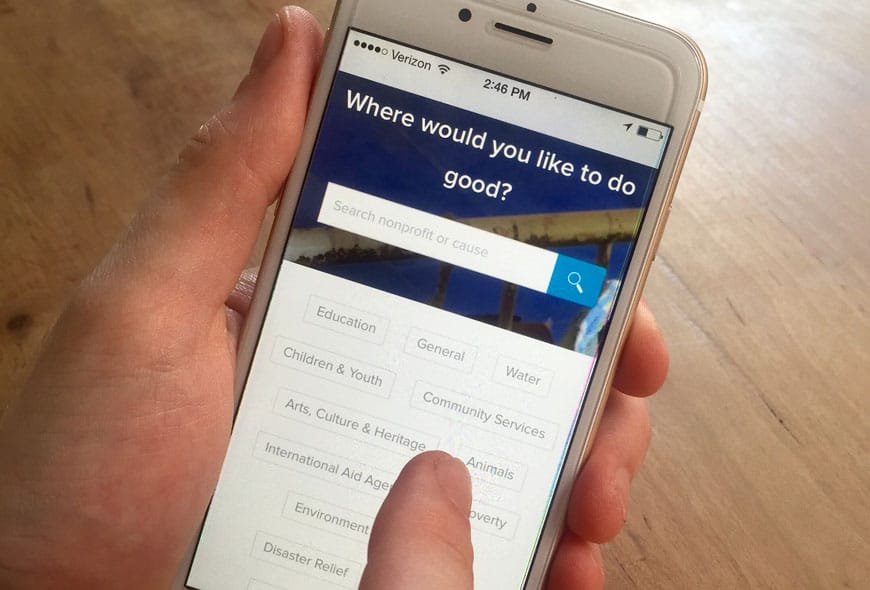Aligning Your CSR Program with Millennials
80 million millennials are reshaping what it means to be an employee — and that’s a good thing. High paying salaries, health benefits and company perks — while important — are no longer enough. Employees are looking for ways to contribute to the betterment of their local communities and to society as a whole.
Corporate social responsibility (CSR) programs have become an important part of this equation. Companies that demonstrate they understand this stand a better chance of not only attracting and retaining top talent, but also show their customers, partners, investors, and the general public that they care about something more than their bottom-line.
Yet, of the 84 percent of millennials who made charitable donations in 2014, only 22 percent said their donations were solicited through the workplace. That number can be attributed to the fact that many companies do not have adequate programs to support the way this generation views philanthropy.
It’s not a question of whether millennials are generous or if they care about social causes — they are— but for a program to appeal to them, it has to appeal to how they live their lives.
Peer pressure, it is a good thing
According to the 2015 Millennial Impact Report, peers are more likely to get millennial employees involved in charitable causes than management. Forty-six percent of millennial employees said they were more likely to donate if a co-worker asked them to donate, compared to 27 percent who said they were more likely to donate if management asked them.
In the beginning, the employee giving and volunteering aspects of CSR were top-down, and some companies are still operating this way. While it’s important that management gets involved and is certainly central to establishing corporate-wide programs, it’s equally critical that companies empower employees from the ground-up.
Incorporate Employee Causes
Rallying the company around a cause is great, but in order to take a company’s CSR program to the next level, show that the company supports the employees’ causes too.
The benefits are twofold: the company demonstrates that it is taking a vested interest in its employees’ interests, and additionally, it’s an effective way to generate greater participation.
CSR Goes Mobile
According to The Next Generation of American Giving, 62 percent of millennials made charitable contributions through mobile platforms. Mobile technology has transformed the way we interact with the world. We have the expectation that everything should be easy, accessible and instantaneous — so why not apply the same logic to how employees contribute to CSR programs? Platforms designed to support this generation’s technology habits will experience greater results.
Incentives and competition are great motivators
The 2015 Millennial Impact Report indicates incentives such as name recognition, prizes or days off in exchange for a donation would motivate 52 percent of millennial employees and 48 percent of millennial managers, compared to 32 percent of non-millennial workers.
Additionally, when competition is involved, 43 percent of millennial employees and 51 percent of millennial managers said they would be more likely to donate through a company-sponsored campaign.
Show Impact
Tools that display real-time insights of employee engagement and program success increase engagement because they witness the positive impact they are making in the world.
Transparency, action and impact are three concepts that resonate with millennials. If an organization incorporates each of these into its corporate responsibility program, millennials will be more inclined to participate.
Over the past 15 years, CSR has become as intrinsic to business as building brand or having a Facebook page — although the latter is pretty new too. Millennial employees not only expect companies to make positive impacts on the world, but also encourage it through donating to causes, volunteering and paying higher prices to product and service providers that share their values.
While many organizations may already have corporate responsibility programs in place, as millennials become a larger part of the workforce, these programs need to take their perspectives into account in order to achieve the greatest impact.
At the end of the day, a CSR program should show that an organization cares about the communities it does business in as well as the world at large. There are countless instances of how a strong employee focused, giving and volunteering program can materially impact employee engagement and appreciation for the company’s CSR program, and consequently, the company itself.










